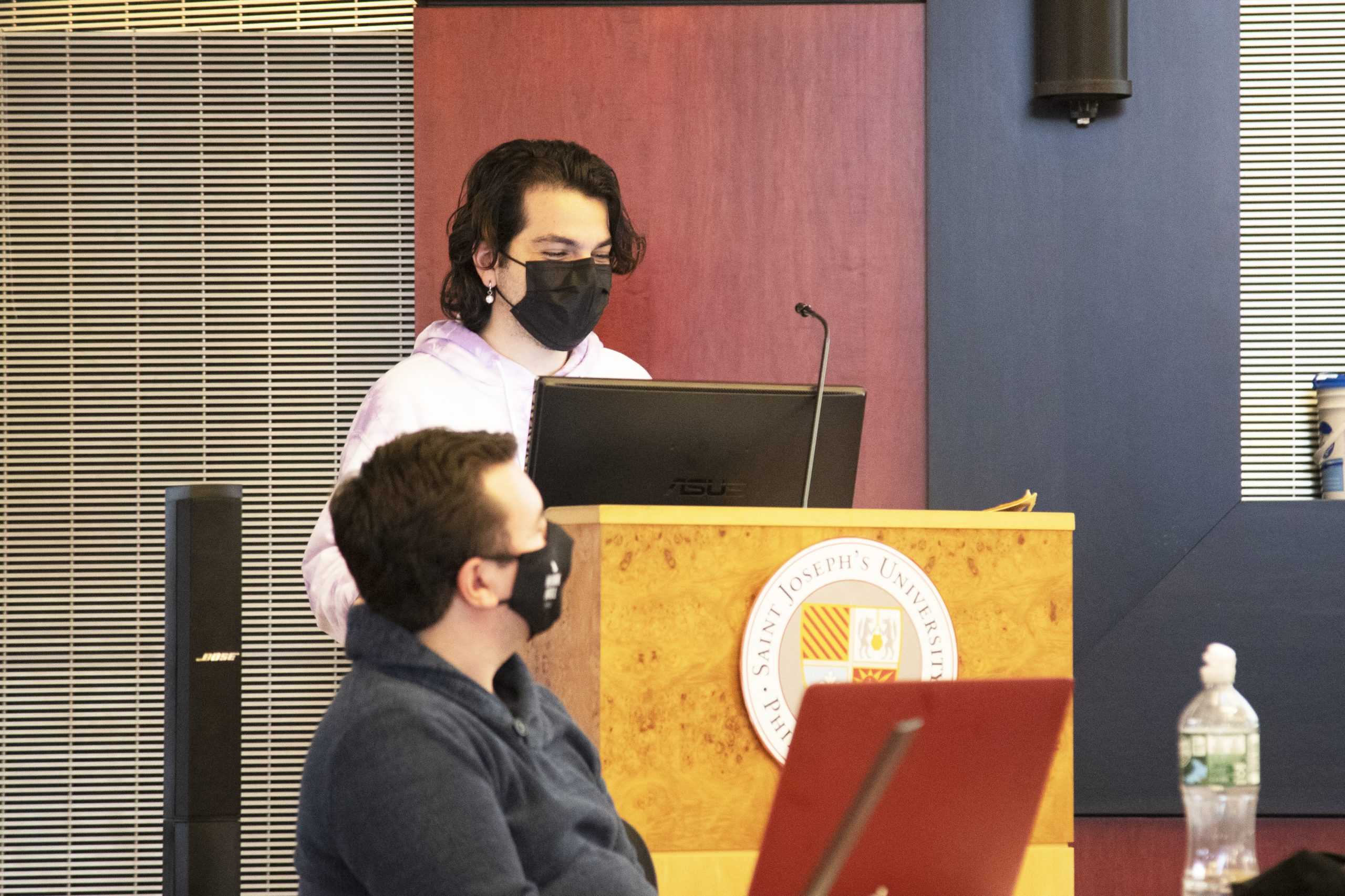Safe Zone Training is celebrating its 20th anniversary at St. Joe’s.
The program, which is open to students, faculty and staff, raises awareness about the issues impacting the LGBTQIA+ community and aims to create an inclusive environment on campus. Safe Zone Training consists of activities and discussions to teach ways to make everyday interactions inclusive. The university held its first Safe Zone Training in 2001.
The anniversary celebration took place during the first training of the school year, which was held on Oct. 27 in the Cardinal Foley Campus Center.
“It’s LGBT History Month, so we thought that it would be a good time to commemorate the anniversary,” said Kim Allen-Stuck, Ph.D., assistant vice president of Student Success and Educational Support and co-facilitator of Safe Zone Training.
“We knew we were doing the training today, so we thought it would be a good time to say ‘This is it, 20 years, new logo, new training.’”
Eli Musselman ’25 said he signed up for the Oct. 27 session because he wanted to make himself more accessible to other peers and learn more about the history of LGBT inclusion at St. Joe’s.
“A lot of it I never even knew, and it was kind of shocking and a little bit surprising or upsetting, but it’s really cool to see how far we’ve come even just within the past couple years,” Musselman said.
Allen-Stuck has been co-facilitating the program for the last four years with Will Marsh ’18, associate director of digital communications in the Office of Marketing and Communications. Marsh said he is proud that the program has continued nonstop, even during coronavirus pandemic shutdowns.
“This is my fourth year as an employee, but four years before that I was an undergrad,” Marsh said. “So, I’ve seen that wave of change especially for the trans community and being much more open and inclusive from when I started in 2014. We still have lots to go, but we are on the right path.”
Suzy Hercher ’25 said Safe Zone Training is important for the campus community to have.
“Obviously we have to have safe spaces where everyone in the community can just bond and specifically feel safe,” Hercher said. “I feel like the Safe Zone Training makes me feel like a bigger part of that.”
Allen-Stuck said the most important part of the program for her is others outside the university community who want to learn about Safe Zone Training and how they can support the LGBT community on their own college campuses.
“There are other Catholic schools that have reached out to us to say ‘What are you doing? How are you doing it?’” Allen-Stuck said. “So in some ways we’re further ahead, which is something we’re proud of.”
Diego Ramírez ’22, who also helped facilitate the training, said St. Joe’s can continue to support the LGBT community by raising awareness about the Safe Zone Trainings on campus and taking other steps to be more inclusive.
“I’m such an advocate that everyone puts their pronouns everywhere because that just normalizes it, and it’s such an easy thing to do,” Ramírez said. “It takes two seconds to add it to all your bios. So, I would start with that.
The next Safe Zone Training will be held on Wednesday, April 6, 2022. Registration is available on the St. Joe’s website.
Megan Hayes ’22 contributed to this story.














































